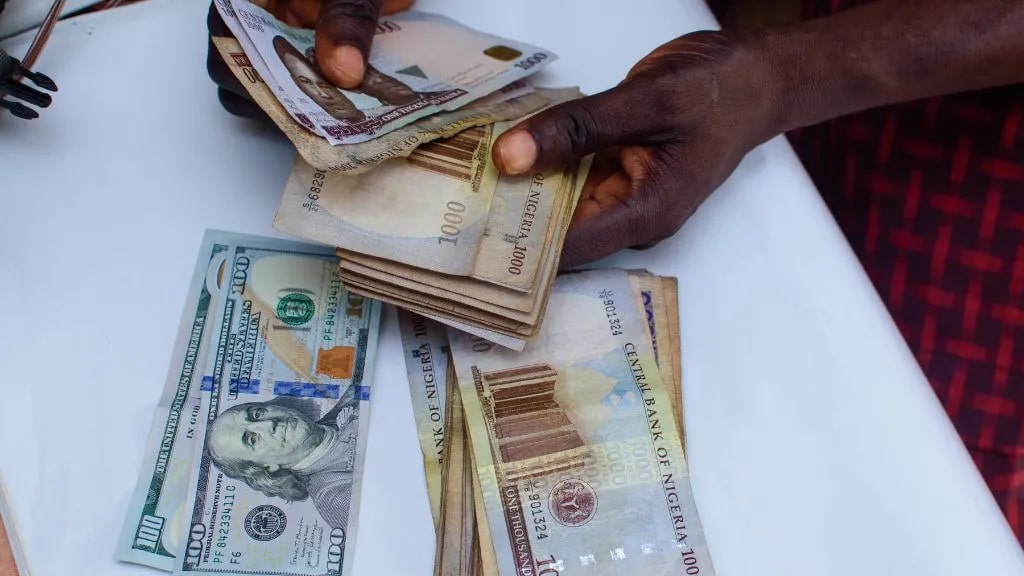Naira, slips further as Nigerian currency loses ground against dollar, pound, and euro. At the close of trading on Tuesday, Naira exchanged at ₦1602.67 per U.S. dollar, down from ₦1601.45 the previous day—representing a 0.0762% depreciation. While modest in numerical terms, the shift reflects continued uncertainty in Nigeria’s currency markets and broader macroeconomic headwinds.
Weakening Across the Board
The Naira also recorded losses against other major global currencies. It fell 0.7183% against the British Pound, moving from ₦2116.49 to ₦2131.74. This was the most significant single-day loss recorded against a major currency. The Pound’s strength, driven by renewed investor confidence in the UK economy and higher demand from Nigerian importers and overseas students, played a major role in the shift.
Meanwhile, the Naira dropped 0.0394% against the Euro, changing from ₦1778.4 to ₦1779.1. Though a minor adjustment, the continued decline signals ongoing vulnerability in Nigeria’s currency performance against its top trading partners.
A Reflection of Structural Challenges
Analysts argue that the gradual depreciation of the Naira is not just a reflection of currency trading dynamics, but a deeper indicator of structural economic challenges. Nigeria, one of the the Africa’s largest economy by GDP, continues to grapple with low oil revenues, rising inflation, and limited foreign direct investment—key drivers of foreign exchange availability.
Further compounding the issue is speculative trading and the widening gap between the official exchange rate and the parallel (black) market. The Central Bank of Nigeria (CBN) has made multiple efforts to unify rates and enhance transparency, but results remain mixed. However, many multinational companies operating in Nigeria have already flagged exchange losses as key risks in their quarterly earnings. Domestically, the Naira’s weakness is most acutely felt by import-dependent businesses, which face rising costs of goods and reduced purchasing power. For everyday Nigerians, the impact is visible in soaring prices of food, fuel, and essential commodities.
Policy Direction Needed
As of today, the Naira’s weakening trend remains steady but not yet drastic. However, if not addressed promptly through bold policy action, the situation could escalate, leading to broader economic instability.
In a global economic environment already strained by inflationary pressures and geopolitical shifts.
Read more:
Naira dips marginally amid persistent forex market volatility
Market watch: Naira loses 0.19% against US dollar – May 9, 2025
Naira under pressure as dollar trades at ₦1,605 in black market today



